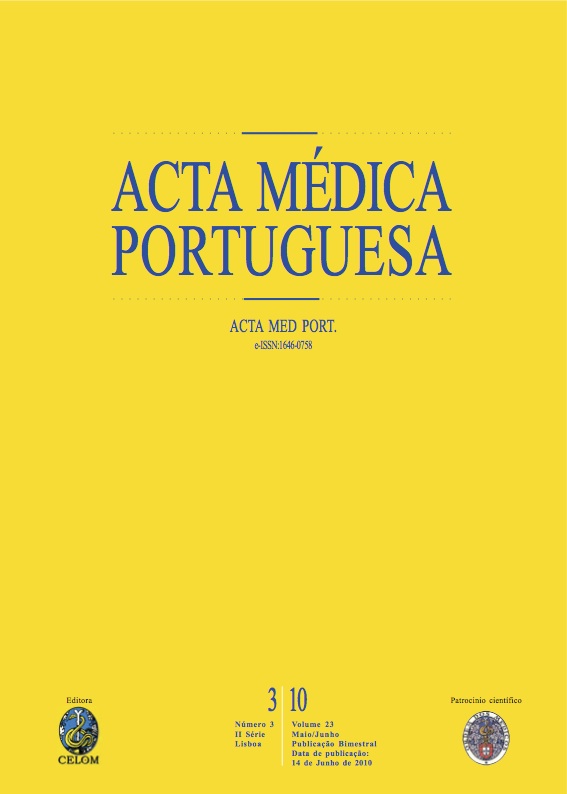A family with a rare disease.
DOI:
https://doi.org/10.20344/amp.628Abstract
Fabry disease (FD) is a rare disorder resulting from mutations of the alpha-Galactosidase A lysosomal enzyme gene. Accumulation of enzyme substrates leads to multisystemic clinical manifestations and multiorgan progressive damage with high morbidity and mortality. Recombinant enzyme replacement therapy (RERT) now available aims to delay or even avoid the complications of FD. The index case was a 50-year-old man with bone pain since childhood, coarse facies, angiokeratomas, anemia, renal failure, proteinuria, sinus node disease, valvular disease and massive left ventricular hypertrophy and brain ischemic alterations. FD diagnosis was confirmed during hospital admission for bacterial endocarditis leading to death. Family screening revealed an affected brother with acroparesthesia, chronic cough, sinus bradycardia, long QT interval and near-nephrotic proteinuria, now under RERT. Their mother was not screened due to stroke sequelae. This report illustrates the need for early diagnosis, family screening and treatment, aiming to change the natural history of FD.Downloads
Downloads
How to Cite
Issue
Section
License
All the articles published in the AMP are open access and comply with the requirements of funding agencies or academic institutions. The AMP is governed by the terms of the Creative Commons ‘Attribution – Non-Commercial Use - (CC-BY-NC)’ license, regarding the use by third parties.
It is the author’s responsibility to obtain approval for the reproduction of figures, tables, etc. from other publications.
Upon acceptance of an article for publication, the authors will be asked to complete the ICMJE “Copyright Liability and Copyright Sharing Statement “(http://www.actamedicaportuguesa.com/info/AMP-NormasPublicacao.pdf) and the “Declaration of Potential Conflicts of Interest” (http:// www.icmje.org/conflicts-of-interest). An e-mail will be sent to the corresponding author to acknowledge receipt of the manuscript.
After publication, the authors are authorised to make their articles available in repositories of their institutions of origin, as long as they always mention where they were published and according to the Creative Commons license.









